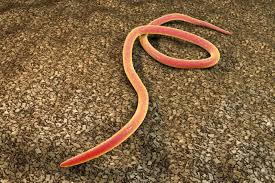Some grouper species have been cultivated in Indonesia and become important fish commodities because of their high prices in the domestic and international markets. Several Hybrid Groupers have been developed to improve fish quality. Hybridization is cross-breeding between genetically different organisms, both in one species known as intraspecific hybridization and between species as interspecific hybridization. Hybridization has become an effective way to obtain the desired characteristics or to improve the quality of the cultivated fish. Deep hybridization aquaculture aims to get fish that have advantages compared to both parents or a combination between them, such as having a fast growth rate, resistance to disease, having better tolerance to environmental changes, improving the quality of fish meat, and other superior traits. Hybridization can also be used to manipulate the sex ratio and also produce sterile fish. The “Cantang” hybrid grouper is produced as a result of crossing female tiger grouper (Epinephelusfuscoguttatus) and male giant grouper (Epinephelus lanceolatus). The “Cantang” hybrid grouper (Epinephelus fuscoguttatus x Epinephelus lanceolatus) is morphologically similar to the two parent species, while growth performance is better than Tiger Grouper or Giant Grouper. Furthermore, this grouper is more adaptive and resistant to certain diseases.
Lamongan has the “Cantang” hybrid grouper commodity and cultivated in traditional ponds located in Jakarta Kampung Kerapu, Kentong, Labuhan, Brondong. The “Cantang” hybrid grouper is easily cultivated in ponds because this grouper species grow faster than other groupers. The problem in grouper cultivation is the presence of worms that become parasites in grouper fish. Ectoparasites infestation in Aquaculture can incur losses for farmers because it can inhibit the growth of fish. Parasites can harm their host because they take food in their host’s body for metabolic needs. Grouper infected by ectoparasites, will rub the skin with objects around it, causing injury that can cause secondary infections, from bacteria or viruses. The existence of secondary infection, can worsen the condition of fish to cause death. The purpose of this study is to determine the species of ectoparasite worms, tendency, prevalence and intensity of attacks on “Cantang” hybrid groupers (Epinephelus fuscoguttatus x Epinephelus lanceolatus) from the traditional ponds of Kampung Kerapu, Lamongan. Furthermore, the results of this study are expected to be used in determining appropriate prevention and control efforts to reduce the risk of aquaculture losses.
This research is a survey with descriptive method. This research was carried out in July-August 2019. The “Cantang” (10-20 cm) hybrids were taken from a traditional pond in Kampung Kerapu, Kentong, Labuhan, Brondong, Lamongan, East Java. Temperature, pH, dissolved oxygen, salinity, and ammonia were measured to determine water quality. Samples were examined at the Anatomy and Fish Culture Laboratory and Microbiology Laboratory, Faculty of Fisheries and Marine Universitas Airlangga (UNAIR), Surabaya.
Author: Gunanti Mahasri Details of this research available at: https://iopscience.iop.org/article/10.1088/1755-1315/441/1/012095





